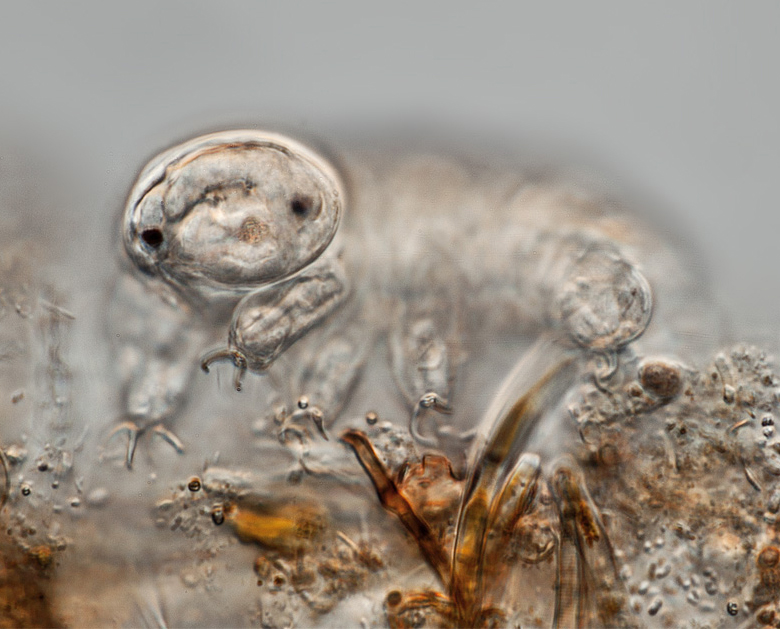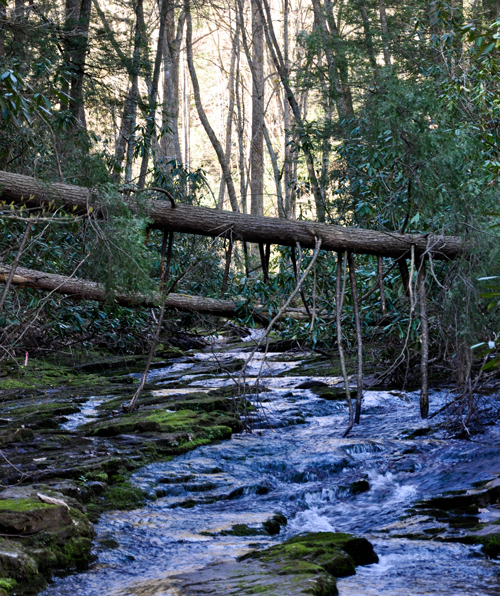Trust in Scientists Is Rising, Poll Finds. The good news: Trust in scientists appears to be rising. The bad news: Scientists aren’t necessarily trusted to act in the public interest, and the partisan divide on topics like climate change is alive and well.
—Tshawna Byerly, Copy Editor
A Crashed Israeli Lunar Lander Spilled Tardigrades on the Moon.

You know tardigrades, those lovable “water bears” that can survive for a decade freeze-dried? They’re now on the Moon! The Israeli spacecraft that crashed onto the Moon’s surface earlier this year was carting a small population of dehydrated tardigrades in its payload. Because the mission unfortunately crashed, the tardigrades went down with the ship. There’s no way to know whether they’re still alive. But don’t worry—the Moon is so barren, the tardigrades aren’t going anywhere. They’d need moisture to rehydrate.
—Jenessa Duncombe, Staff Writer
Amid Protests in Hawaii Against Giant Telescope, Astronomers Look to “Plan B.”

The saga of the Thirty Meter Telescope (TMT), approved by officials for construction on Hawaii’s Mauna Kea, has seen many scientists, engineers, and other proponents of the TMT pitted against native Hawaiians who hold Mauna Kea as sacred in an uncomfortable and as yet intractable dispute for the past decade or so. Perhaps it’s time for a “plan B” that might be acceptable to all parties involved.
—Timothy Oleson, Science Editor
I’m an editor, so a lot of what I do is cut or change words. These are some of the mistakes and misuses I see all the time & how to fix them. This thread is not to shame or subtweet anybody — I learned many of these mistakes by making them myself. Please add your own favorites!
— Laura Helmuth (@laurahelmuth) August 4, 2019
For all our writer friends, Washington Post health and science editor Laura Helmuth began an enlightening Twitter thread this week on the little word usage mistakes writers commonly make. There are hundreds of replies. Enjoy!
—Heather Goss, Editor in Chief
Drought Reveals Lost Temple in Thailand Submerged by Dam.

A nationwide drought doesn’t often have a silver lining, and this one is fleeting. This is a “bitter choice between water and worship” and an example of the hard choices we will have to make as the world’s climate continues to change.
—Kimberly Cartier, Staff Writer
Climate Change Could Threaten Your Cuppa.
As a devout tea drinker, I find this article on climate change’s impact on tea farming in Sri Lanka incredibly troubling. Climate change is bad enough—why does it have to come for our caffeine too?
—Jenessa Duncombe, Staff Writer

Check out some of the entries to the Agora Images #Nature2019 photo contest. Especially beautiful are the White Cliffs of Dover and, speaking of tea, the Sun rising over a tea garden in Indonesia.
—Don Hendrickson, Copy Editor
Decades of Dumping Acid Suggest Acid Rain May Make Trees Thirstier.

Great explainer of a fascinating finding coming out of a decades-long study: Forests more impacted by acid rain appear to be “thirstier,” taking up more water from the soil than forests less impacted.
—Timothy Oleson, Science Editor
Star Wars inadvertently blasted the Apollo program and won the space race by giving “outer space back to the general population as excitement and wonder—a mere simulacrum of space, of course, but it turned out people didn’t mind that.”
—Caryl-Sue, Managing Editor

